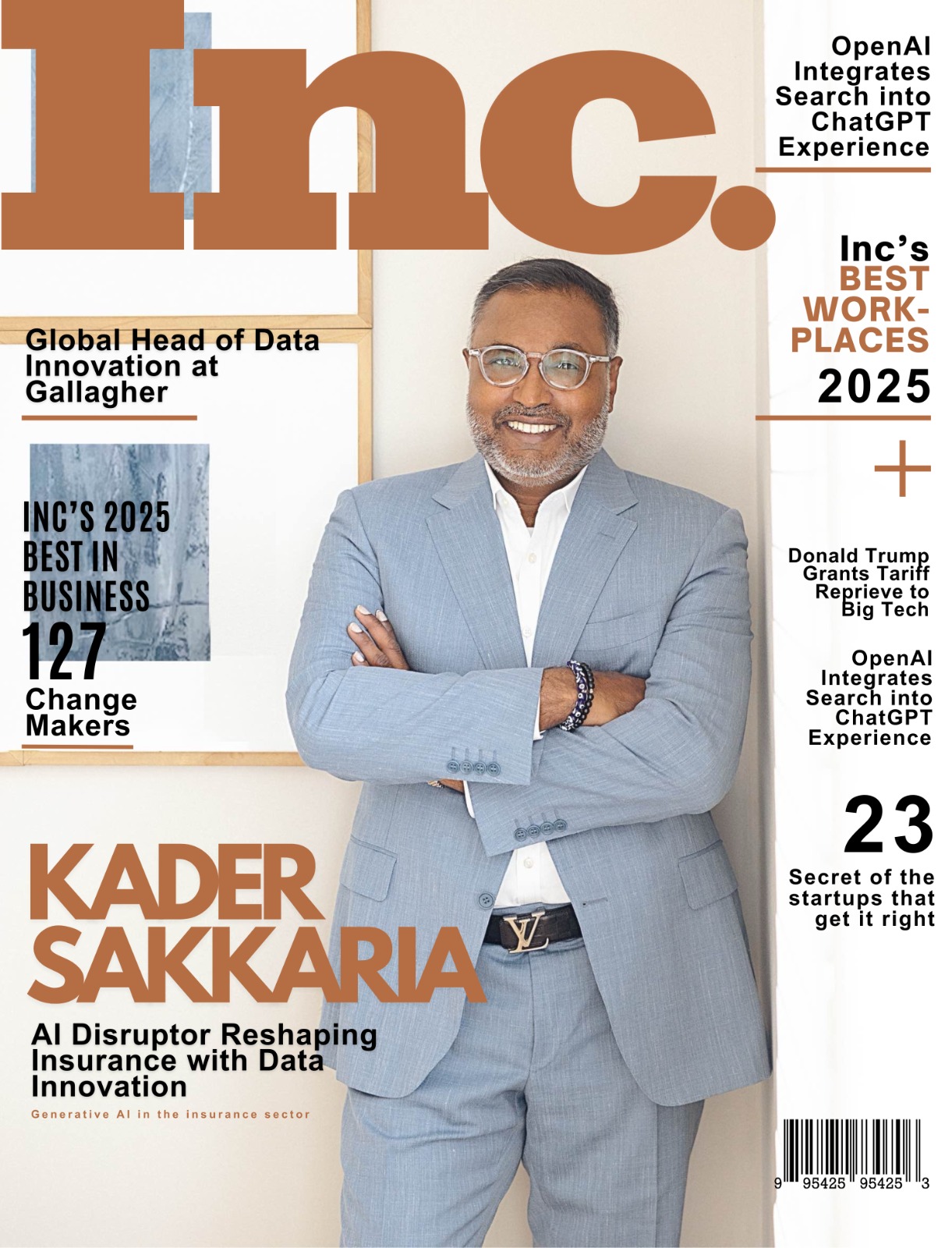Transforming Insurance Through Generative AI: Operational Efficiency Meets Customer Experience
Kader Sakkaria, Global Head of Data Technology at Gallagher and an ambitious Doctor of Business Administration (DBA) candidate.

In an industry long characterized by legacy systems and risk aversion, insurance is undergoing a profound digital transformation. At the center of this evolution is Generative AI—a form of artificial intelligence capable of generating human-like content using deep learning models such as GPT-4. My doctoral research focuses on how Generative AI is fundamentally reshaping two critical areas of the insurance industry: operational efficiency and customer experience.
The convergence of rising customer expectations with competitive pressure has created an inflection point—one that AI is well-positioned to address.
From Hours to Seconds: AI in Claims Processing
Traditional claims processes are often manual, repetitive, and time-intensive. Enter Generative AI.
Lemonade, the digital-first insurer, has demonstrated that AI can radically reduce processing time. Its claims bot, “AI Jim,” successfully approved and paid a renter’s insurance claim in under 3 seconds—a new benchmark for speed in the industry.
Allstate has taken a different but equally impressive path. Its “MyStory” tool allows policyholders to verbally describe an incident, which is then converted into a written claims summary using OpenAI’s GPT technology. This reduced claim intake time from four minutes to just 43 seconds.
According to Bain & Company and Boston Consulting Group, insurers implementing Generative AI in claims handling are achieving 20–30% increases in operational productivity and reducing loss-adjustment expenses by up to 25%.

Redefining the Underwriting Experience
Underwriting is another function being revolutionized. In 2023, Hiscox, in collaboration with Google Cloud, launched the London market’s first AI-enhanced underwriting solution. The GenAI model can draft quotes for niche lines such as sabotage and terrorism insurance within minutes—a process that previously took several days.
Allianz Commercial is also exploring how GenAI can support underwriters by deploying chatbots that provide on-demand answers to risk and policy questions and summarize broker submissions from internal databases. This allows underwriters to focus more on judgment-intensive analysis.
Meanwhile, a Strategy & report noted that a mid-sized insurer that implemented generative AI for dynamic policy generation saw a 10% increase in operating profit, attributed to speed, personalization, and lower administrative costs.
Enhancing Customer Experience with Empathetic AI
Customer engagement is no longer just about service—it’s about experience. And here, GenAI is already proving its worth.
Allstate, for instance, has implemented GPT-based AI to generate over 50,000 daily customer emails in clear, empathetic, and jargon-free language. This ensures tone consistency and frees up agents to handle complex cases. What’s more, policyholders receive responses that feel both professional and human.
State Farm launched a GenAI-powered knowledge assistant in 2024 that helps its contact center staff quickly answer customer questions. This has led to faster call resolution and improved first-contact accuracy.
Chatbots powered by large language models are now common at Progressive, GEICO, and Lemonade, handling over 80% of routine inquiries and contributing to up to a 25% increase in CSAT scores.

Balancing Innovation with Ethics
Despite these benefits, Generative AI is not without risk. Bias in algorithms, lack of transparency in automated decisions, and the misuse of personal data all present serious challenges.
My research highlights the need for ethical AI frameworks that include:
- Model transparency
- Regulatory compliance
- Human-in-the-loop decision making
Companies like Zurich Insurance are leading the way in using GenAI for fraud detection, while also ensuring investigators validate AI outputs before action is taken. This balance between automation and accountability is essential.

The Future is Now
A 2023 report from Opinium Research found that 59% of insurers are already using some form of Generative AI. As the technology matures, its impact will grow—not just in back-end automation, but in reimagining how insurers build trust, tailor services, and scale personalized experiences.
Conclusion: From Automation to Transformation
Generative AI is helping insurers move beyond legacy modernization into true innovation. Faster claims. Smarter underwriting. Personalized service at scale. And the ability to anticipate customer needs before they arise.
Insurers that embrace this shift—while remaining ethical and transparent—will not only thrive but help reshape the future of insurance itself.
About the Author
Kader Sakkaria, Global Head of Data Technology at Gallagher and an ambitious Doctor of Business Administration (DBA) candidate, is at the forefront of pioneering research into the transformative operational and experiential impact of Generative AI on the insurance sector.
Disclaimer: The views and opinions expressed herein are those of the author, Kader Sakkaria, in his personal capacity as a Doctor of Business Administration (DBA) candidate. They do not represent or reflect the official views, policies, or positions of Arthur J. Gallagher & Co. or its affiliates.




